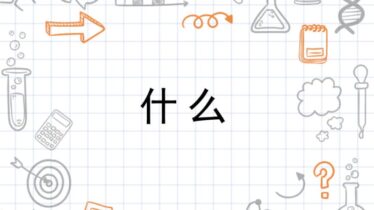Cara menggunakan '和 hé' (dan) dalam bahasa Cina
In the Mandarin Chinese language, we use 和 (hé) to connect two or more elements, indicating a parallel relationship. Let us show you how to use the grammar for this Chinese word that means ‘and’, which is a common mistake for beginning Chinese learners.
Example of us 和 hé (and)
- 我喜欢苹果和西瓜。
- Wǒ xǐhuan píngguǒ hé xīguā.
- I like apples and watermelons.
Atau:
- 我家有三口人,爸爸、妈妈和我。
- Wǒ jiā yǒu sān kǒu rén, bàba, māma hé wǒ.
- There are three people in my family, father, mother and me.
Here it seems so easy to use 和 hé in Chinese. And yet, because the word ‘and’ in English is very versatile, this often causes English-speaking Chinese learners to overuse hé (和).
Wrong usage
In English ‘and’ can connect words, phrases, and sentences. For example “I like apples and watermelons”, “I like playing soccer and watching movies”, “I am Lily and I am Chinese.”
However, In Chinese hé (和) can only connect words or phrases. It should not be used to connect sentences. For example, In Chinese, you also can say “I like apples and watermelons” (我喜欢苹果和西瓜 Wǒ xǐhuan píngguǒ hé xīguā, “I like playing soccer and watching movies” (我喜欢踢足球和看电影 Wǒ xǐhuan tīzúqiú hé kàndiànyǐng), but you cannot say “I am Lily and I am Chinese” (我是Lily和我是中国人 Wǒ shì Lily hé wǒ shì zhōngguó rén).
Here you have to think about which words to use when you want to connect these two sentence parts. Such as “I am Lily and I am Chinese.” There are two ways you can use:
- First, you don’t need to put anything in between these two sentences. You can use a period to replace it. For example “我是Lily。我是中国人。Wǒ shì Lily. Wǒ shì zhōngguó rén.”
- Second, you can use 还有 (háiyǒu) to connect two sentences. For example “我是Lily,还有我是中国人。Wǒ shì Lily, háiyǒu wǒ shì zhōngguó rén.”
Don’t use 和 hé to connect clauses
‘和 hé’ is the Mandarin version of the run-on sentence. The elements joined by “和” (hé: and) are coordinate and they often belong to the same kind. Generally, “和” (hé: and) is not used to join clauses. For example, when talking about hobbies, students may say “我喜欢看电影和我喜欢听音乐”(wǒ xǐhuan kàn diànyǐng hé wǒ xǐhuan tīng yīnyuè: I like watching movies and I like listening to music.) Since “我喜欢看电影” and “我喜欢听音乐” are two clauses, we do not use “和” (hé: and) to connect them.
There are two ways to correct this:
- Make the clauses dependent. “我喜欢看电影和听音乐” (wǒ xǐhuan kàn diànyǐng hé tīng yīnyuè), because “看电影”(kàn diànyǐng) and “听音乐”(tīng yīnyuè) are not full sentences anymore.
- Use a comma to connect the two clauses. “我喜欢看电影,也喜欢听音乐” (wǒ xǐhuan kàn diànyǐng,yě xǐhuan tīng yīnyuè).
Examples
- 咖啡多少钱一杯和啤酒多少钱一瓶 (Kāfēi duōshǎo qián yìbēi hé píjiǔ duōshǎo qián yìpíng: How much is a cup of coffee and how much is a bottle of beer?)
咖啡多少钱一杯?啤酒多少钱一瓶?(Kāfēi duōshǎo qián yìbēi? Píjiǔ duōshǎo qián yìpíng?) - 医生给我一些药和说: “多喝水.” (Yīsheng gěi wǒ yìxiē yào hé shuō ‘duōhēshuǐ’ : The doctor gave me some medicine and said “drink more water”).
医生给我一些药,说:“多喝水。” (Yīshēng gěi wǒ yīxiē yào, shuō:“Duō hē shuǐ.”)
Does that clarify how to use ‘和 hé’ (and) in Chinese?



